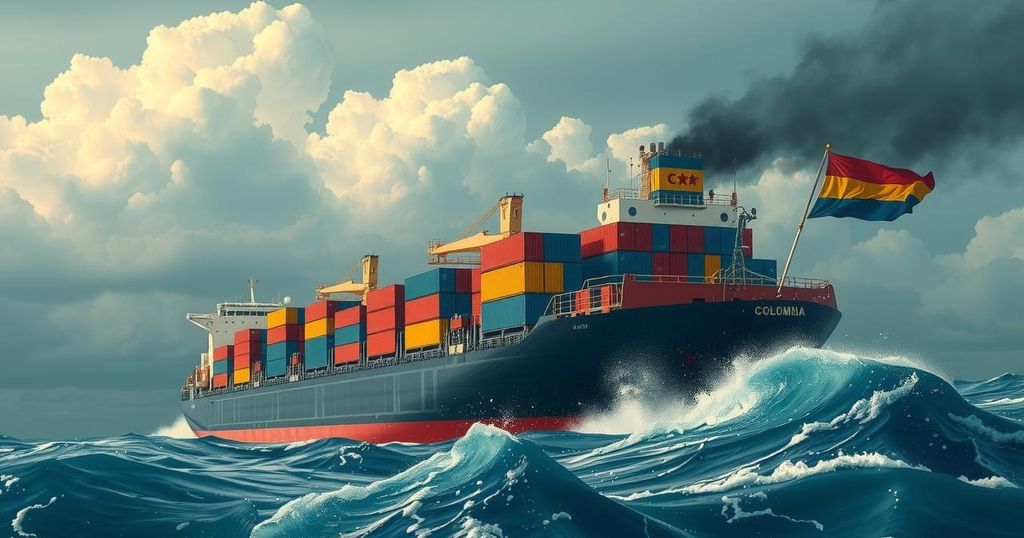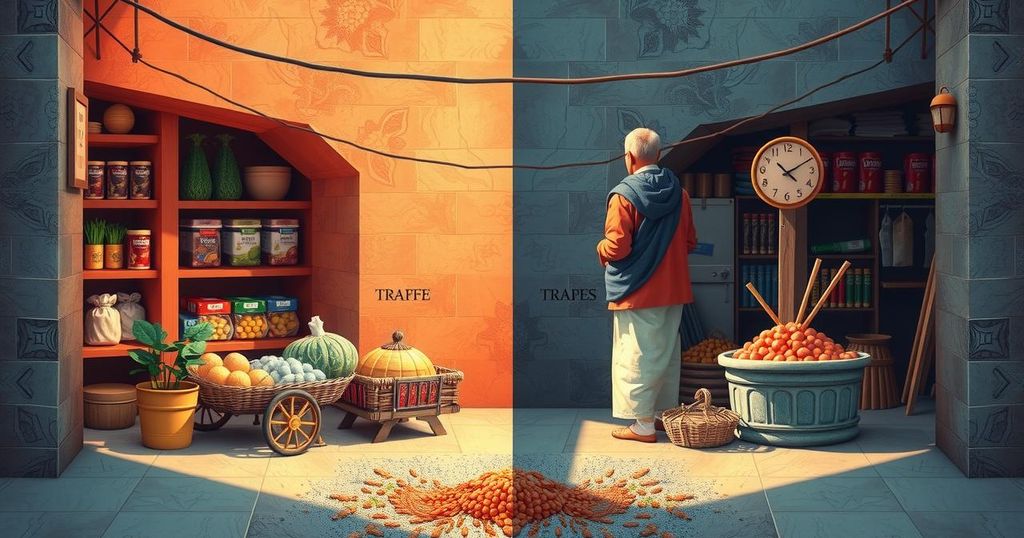Politics
ABC NEWS, BRAZIL, COLOMBIA, CORRUPTION, CUBA, DONALD TRUMP, FOREIGN MINISTRY OF BRAZIL, GUSTAVO PETRO, MONEY LAUNDERING, NATIONAL SECURITY, NATIONAL SECURITY AND PUBLIC SAFETY, NORTH AMERICA, PETRO, SECURITY, SOUTH AMERICA, STATES, TRUMP, TRUMP ADMINISTRATION, U. S, UNITED STATES
Sophia Klein
Tensions Rise as Trump Threatens Tariffs on Colombia Over Blocked Military Flights
President Trump issued threats against Colombia after two military flights were blocked from landing. He claimed the Colombian government’s actions jeopardized U.S. national security and announced potential tariffs on Colombian imports. President Petro retaliated by threatening similar tariffs on U.S. goods, highlighting tensions over immigration repatriation practices.
On Sunday, President Donald Trump threatened Colombia with significant tariffs following the rejection of two U.S. military flights that were to repatriate undocumented immigrants. Colombian President Gustavo Petro’s decision to block these flights drew Trump’s ire, who claimed it endangered U.S. national security. In response, Trump announced plans for an immediate 25% tariff on Colombian goods, with the potential to increase this to 50% within a week.
The tension arose from Colombia’s refusal to allow U.S. military aircraft carrying undocumented immigrants to land, leading to retaliatory threats from President Trump. This incident highlights ongoing issues in U.S.-Colombian relations, especially concerning the handling of deportees and immigration policy. Furthermore, Colombia’s economy is heavily intertwined with the U.S., as it represents a significant portion of their trade, primarily in agricultural goods and crude oil.
The escalating conflict between the U.S. and Colombia over immigration policies underscores the complex dynamics of international relations. Trump’s threats of tariffs and sanctions reflect a tougher stance towards Colombia, which could have substantial economic repercussions for both nations. President Petro’s counter-threat of reciprocal tariffs indicates a potential trade dispute, further complicating their diplomatic interactions.
Original Source: abcnews.go.com








Post Comment